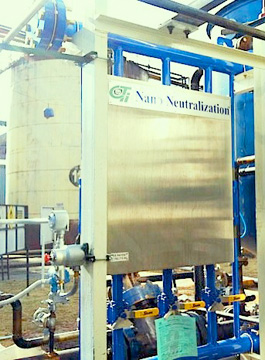Edible Oil Refining
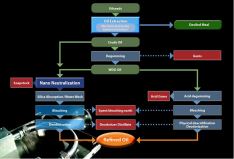 Vegetable oil refining facilities process crude oils such as soybean oil, palm oil, rapeseed oil, canola oil, sunflower oil and other specialty oils including: peanut oil, olive oil and cottonseed oil. The processing converts them into oil for various consumer and industrial uses, for example, cooking oil, flavor enhancements and food additives. The demand for the edible oil industry has historically grown at over 5% per year, even during periods of global economic instability. CTi currently focuses on expanding its market share across a variety of edible oil refining sectors.
Vegetable oil refining facilities process crude oils such as soybean oil, palm oil, rapeseed oil, canola oil, sunflower oil and other specialty oils including: peanut oil, olive oil and cottonseed oil. The processing converts them into oil for various consumer and industrial uses, for example, cooking oil, flavor enhancements and food additives. The demand for the edible oil industry has historically grown at over 5% per year, even during periods of global economic instability. CTi currently focuses on expanding its market share across a variety of edible oil refining sectors.
CTi Nano Neutralization®: Unmatched in Performance and Environmentally Friendly
Based on the technology developed by CTi and exclusively brought to the oils and fats industry by the oil giant Desmet Ballestra, the Nano Neutralization® process offers enhanced performance: improved oil yield, lowered operating expenses, reduced environmental impact and 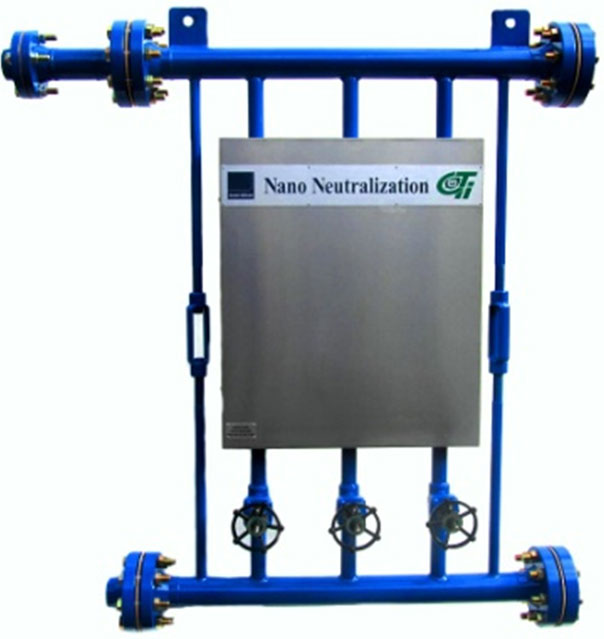 exceptional oil quality. The neutralization of free fatty acids transforms them into soaps followed by the separation step. The procedure also removes non-hydratable phosphatides and decreases the level of impurities. The repeated controlled formation and the implosion of cavitation nano bubbles, high-velocity jet occurrence, shockwave formation and other phenomena act on the oil-containing process mixture significantly accelerating the rates of desirable processes. One Nano Reactor® is capable of processing hundreds of metric tons per day (MTPD) of oil. The pressure in the Nano Reactor® typically ranges from 600 to 1,200 psig and the discharge pressure allows the direct feeding of the treated oil into the centrifugal separator. CTi’s systems are compact, made of durable and chemically inert stainless steel, easy to clean and scalable.
exceptional oil quality. The neutralization of free fatty acids transforms them into soaps followed by the separation step. The procedure also removes non-hydratable phosphatides and decreases the level of impurities. The repeated controlled formation and the implosion of cavitation nano bubbles, high-velocity jet occurrence, shockwave formation and other phenomena act on the oil-containing process mixture significantly accelerating the rates of desirable processes. One Nano Reactor® is capable of processing hundreds of metric tons per day (MTPD) of oil. The pressure in the Nano Reactor® typically ranges from 600 to 1,200 psig and the discharge pressure allows the direct feeding of the treated oil into the centrifugal separator. CTi’s systems are compact, made of durable and chemically inert stainless steel, easy to clean and scalable.
The revolutionary process is commercially proven and offers a quick return on its investment. New or existing refining plants deserve the best: CTi Nano Neutralization® can be effortlessly incorporated, in line, at an existing oil refining facility to improve the oil yield and save silica or wash water, reduce the consumption of phosphoric acid and caustic, and can even allow savings on steam, maintenance, repair parts and labor costs. Repair parts and maintenance costs can be lessened in refineries that presently use outdated high-shear mixers and acid reactors to mix the acid into the oil and provide retention. In such cases, the high-shear mixer and tank agitator are taken out of service. The annual maintenance and repair parts costs for this equipment far exceed that of the CTi Nano Reactor®. CTi Nano Neutralization® is also available for implementation in new edible refineries. The technology reduces equipment and installation costs while also providing the abovementioned chemical savings.
The Company signed a Technology License, Marketing & Collaboration Agreement with Desmet Ballestra, which incorporates Nano Neutralization® in edible oil refining plants with a process improvement guarantee. CTi Nano Neutralization® will soon become “The Industry Standard”.
Read more: www.nanoneutralization.com.
Advantages of CTi Nano Neutralization®
 The yield of refined oil rises by over 0.2%: advanced conditioning of the oil in Nano Reactor® results in excellent separation of the heavy aqueous phase and the light oil phase in a downstream centrifuge followed by an increase in the yield. Since less soap remains in the neutralized oil phase, the downstream need for silica (or wash water) drops as much as by 50%, which also translates into smaller oil losses in the spent silica or wash water. Some customers have experienced a 50% decrease in the silica usage! The Nano Reactor® significantly facilitates the removal of non-hydratable phospholipids and the use of phosphoric acid or citric acid decreases: the reduction of phosphoric acid consumption can reach 90% or phosphoric acid can be fully eliminated. The decrease in caustic usage exceeds 30%: the significantly lowered phosphoric acid consumption allows savings in caustic usage. Caustic addition is further lessened, due to the superior mixing of the caustic aqueous solution and oil in the Nano Reactor®, resulting in the need of a stoechiometric amount of caustic to convert free fatty acids into soaps. Other advantages include savings of steam consumption and maintenance: steam can be saved in refineries that presently heat the oil above the centrifugal separation temperature during the acid pretreatment step. With CTi Nano Neutralization® there is no need to heat the oil above the centrifugal separation temperature, thus saving steam.
The yield of refined oil rises by over 0.2%: advanced conditioning of the oil in Nano Reactor® results in excellent separation of the heavy aqueous phase and the light oil phase in a downstream centrifuge followed by an increase in the yield. Since less soap remains in the neutralized oil phase, the downstream need for silica (or wash water) drops as much as by 50%, which also translates into smaller oil losses in the spent silica or wash water. Some customers have experienced a 50% decrease in the silica usage! The Nano Reactor® significantly facilitates the removal of non-hydratable phospholipids and the use of phosphoric acid or citric acid decreases: the reduction of phosphoric acid consumption can reach 90% or phosphoric acid can be fully eliminated. The decrease in caustic usage exceeds 30%: the significantly lowered phosphoric acid consumption allows savings in caustic usage. Caustic addition is further lessened, due to the superior mixing of the caustic aqueous solution and oil in the Nano Reactor®, resulting in the need of a stoechiometric amount of caustic to convert free fatty acids into soaps. Other advantages include savings of steam consumption and maintenance: steam can be saved in refineries that presently heat the oil above the centrifugal separation temperature during the acid pretreatment step. With CTi Nano Neutralization® there is no need to heat the oil above the centrifugal separation temperature, thus saving steam.
Expanding CTi’s Core Technology to Other Edible Oil Processing Steps
Building on the success of the CTi Nano Neutralization® process, CTi is exploring opportunities for additional applications in edible oil refining, including water degumming, bleaching and deodorization. Pumping the mixture of oil and water through CTi’s hydrodynamic cavitation devices maximizes the oil-water interfacial area, promoting vigorous gum hydration and their expeditious removal from oil. Plant pigments and target color compounds are removed from oil during a bleaching step using adsorbents. Superior mixing and the capacity of CTi’s devices are expected to substantially cut the costs and facilitate oil bleaching. Volatile components that negatively affect oil’s taste and its odor are removed by deodorization, which typically employs steam injection under a high vacuum and increased temperature. The process can be modified, accordingly, to incorporate the use of CTi’s flow-through systems.
The Company is actively marketing its technologies to small-scale oil refineries.![]() DBNA - Nano Neutralization
DBNA - Nano Neutralization
INLINE INSTALLATIONS AND SKID SYSTEMS
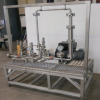
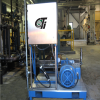
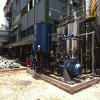


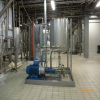
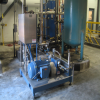
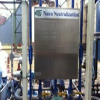

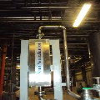

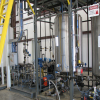

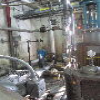


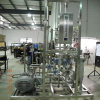
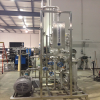
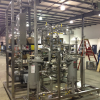
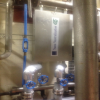
* Click on the image to see a full-size version

